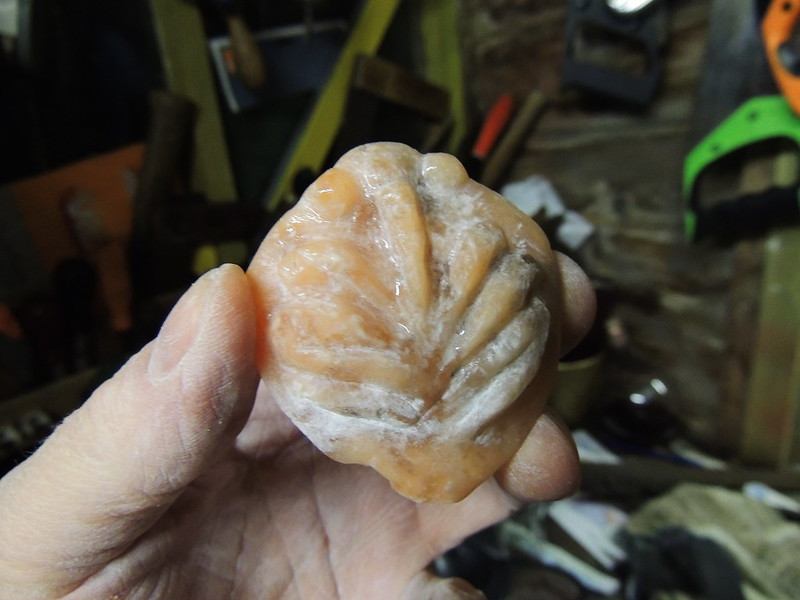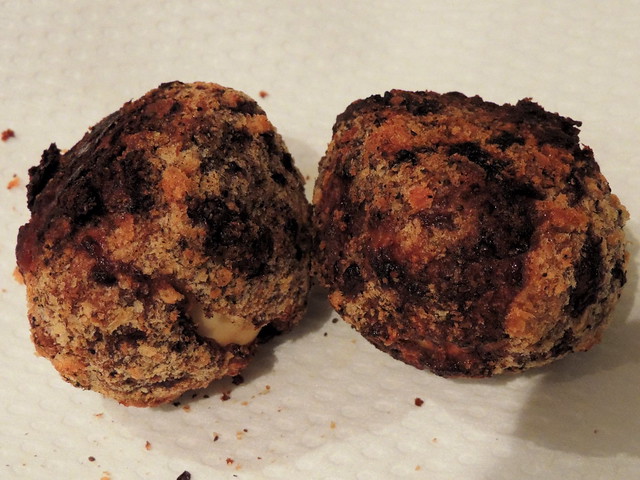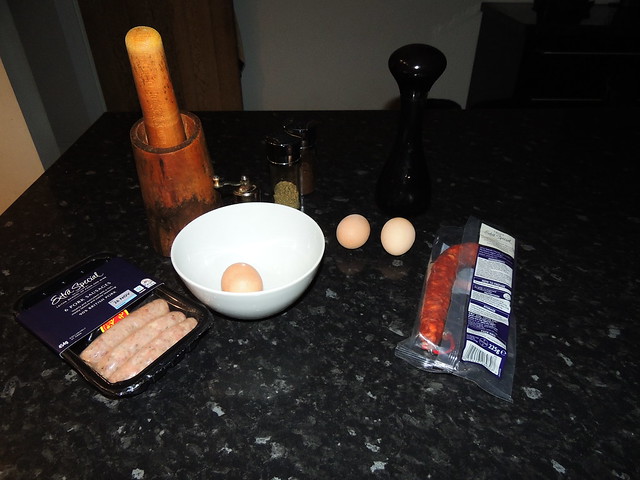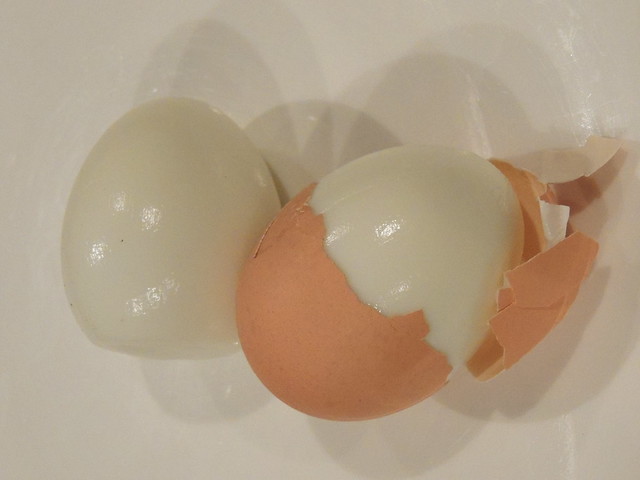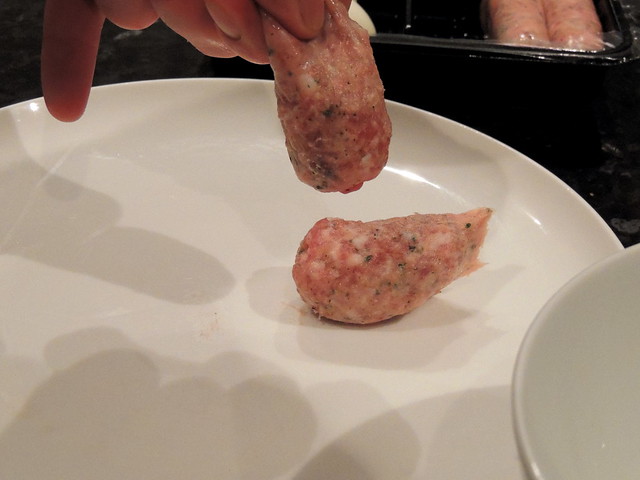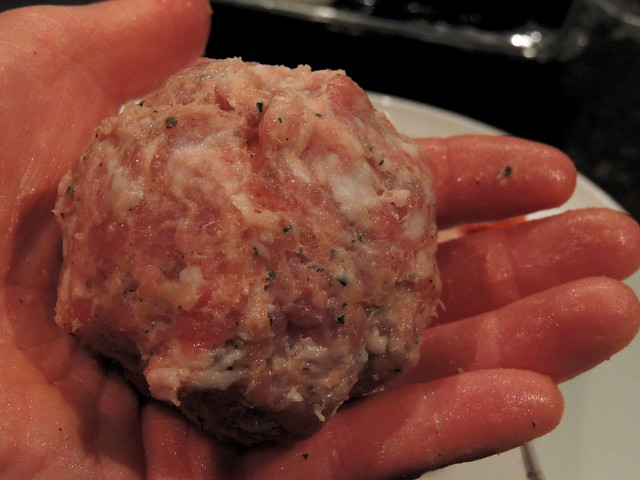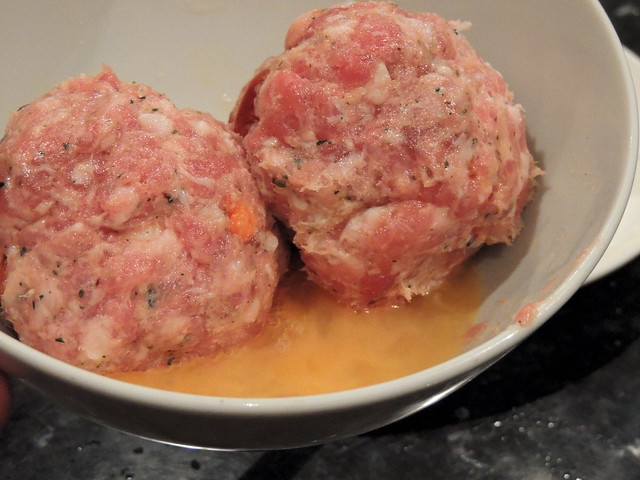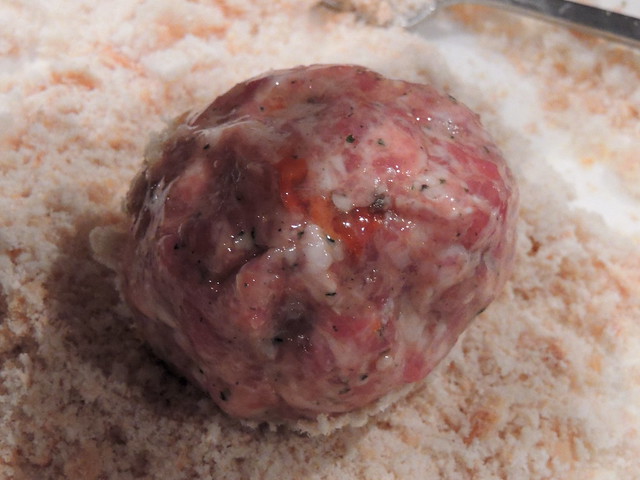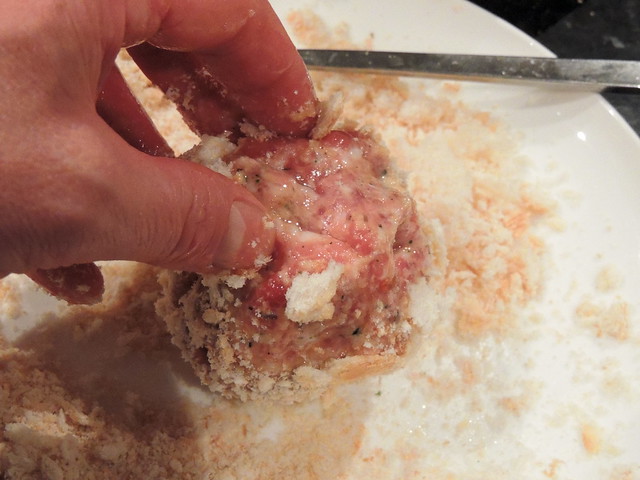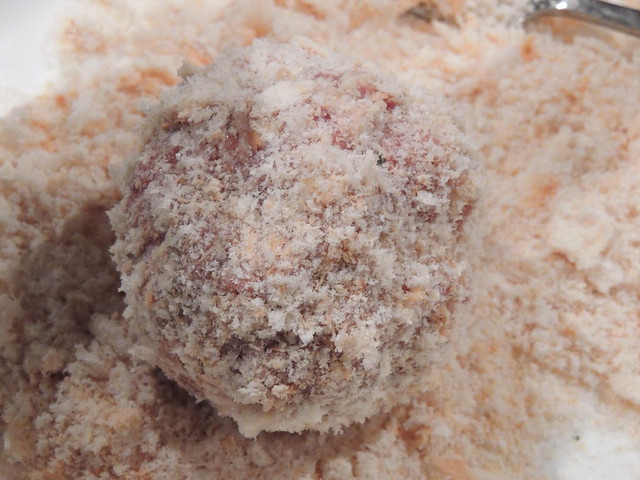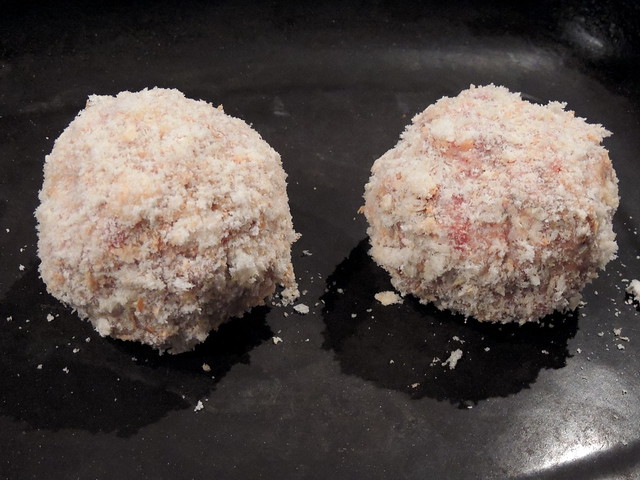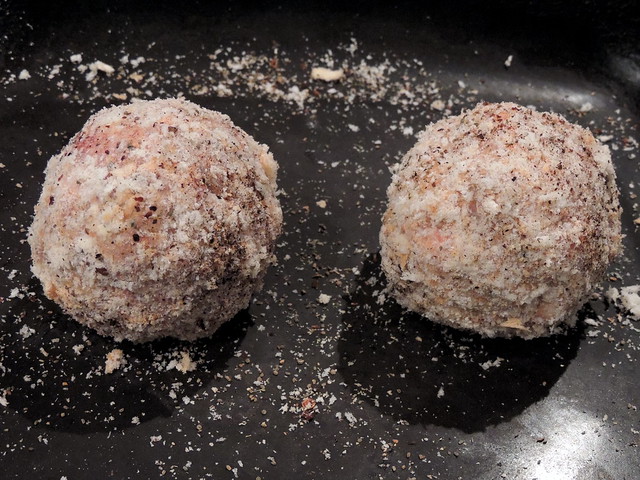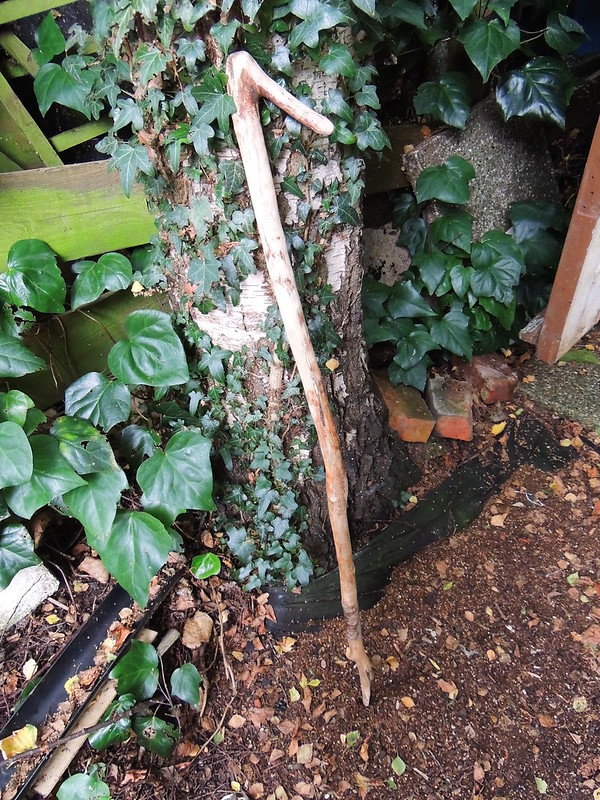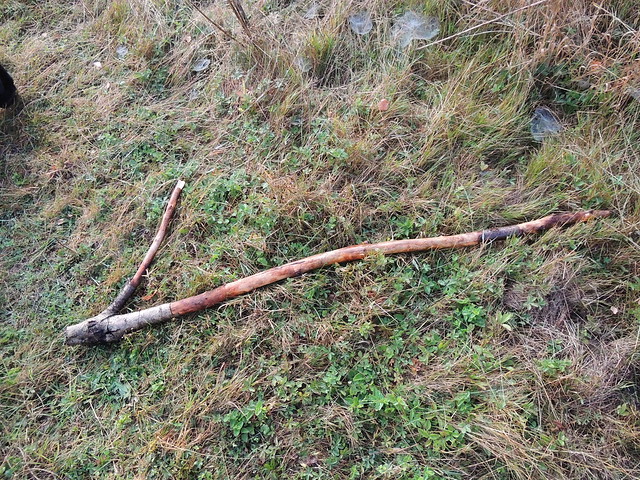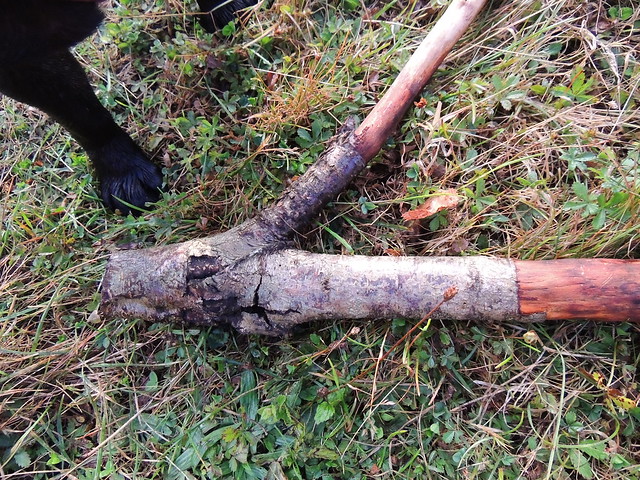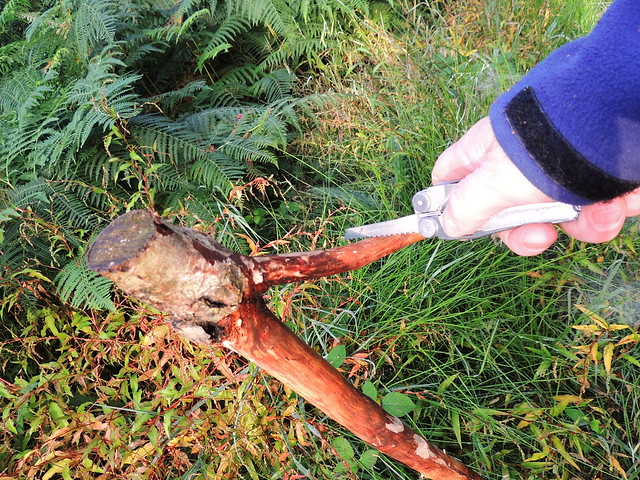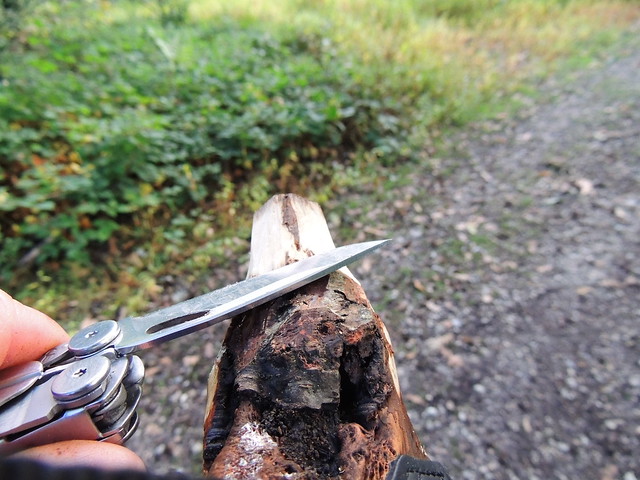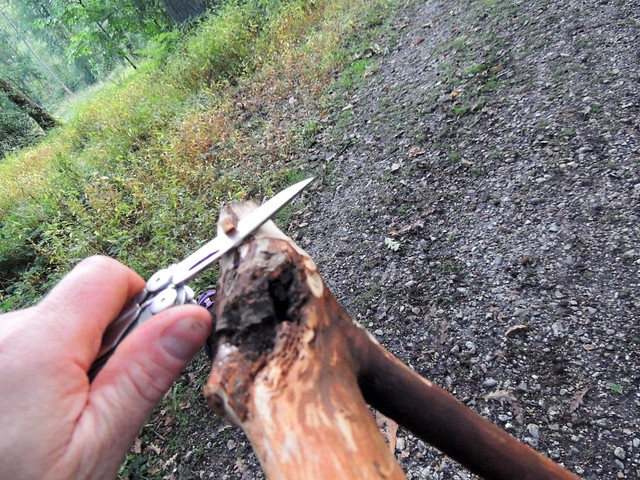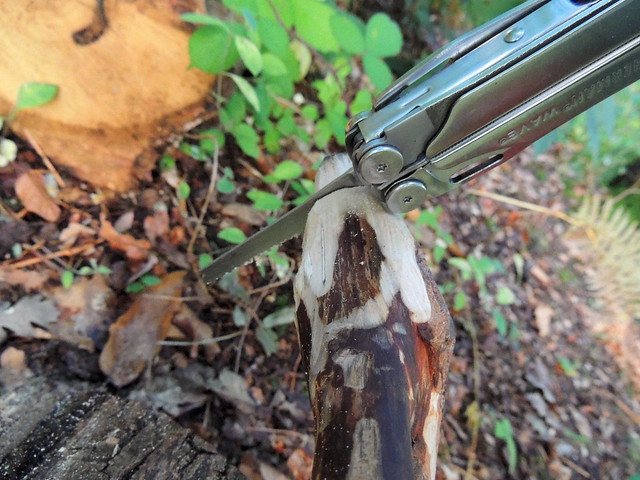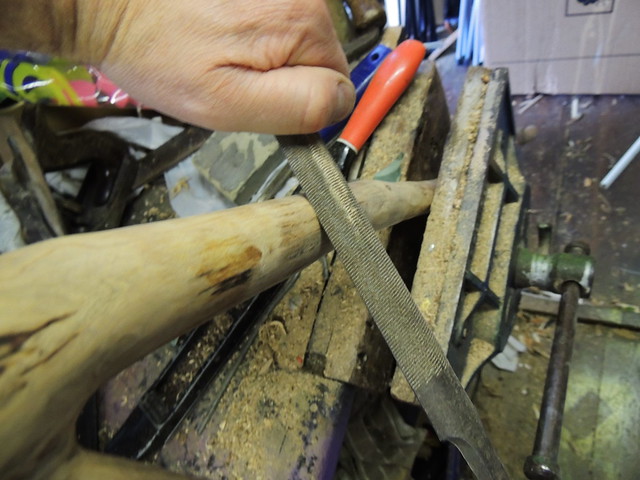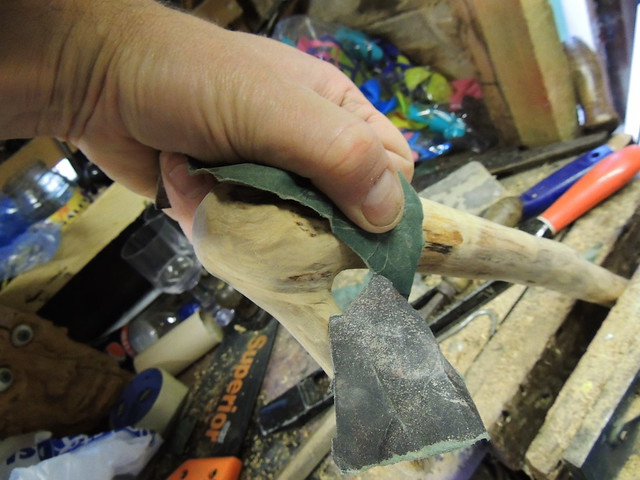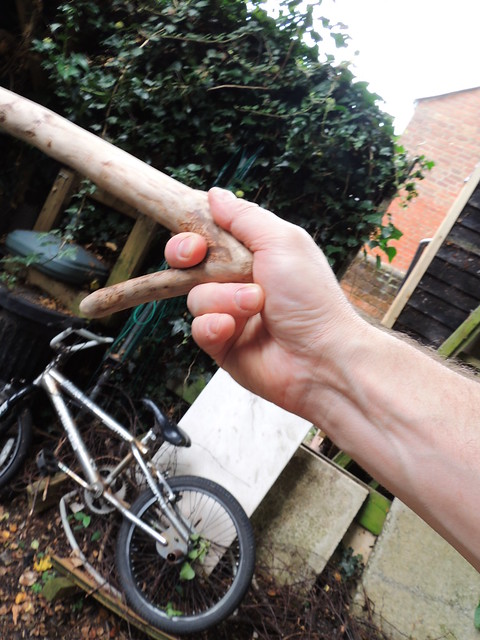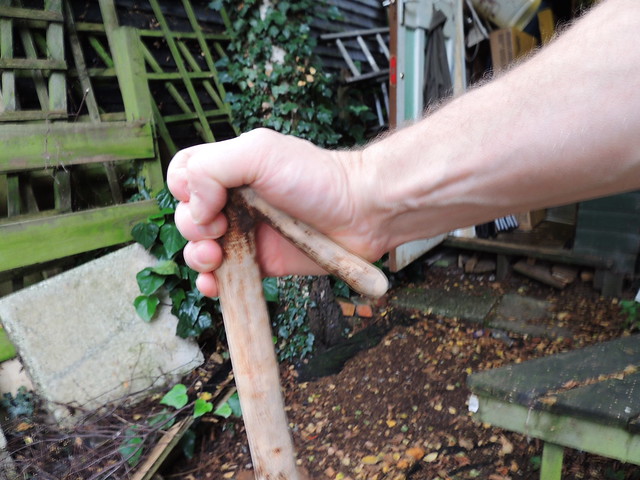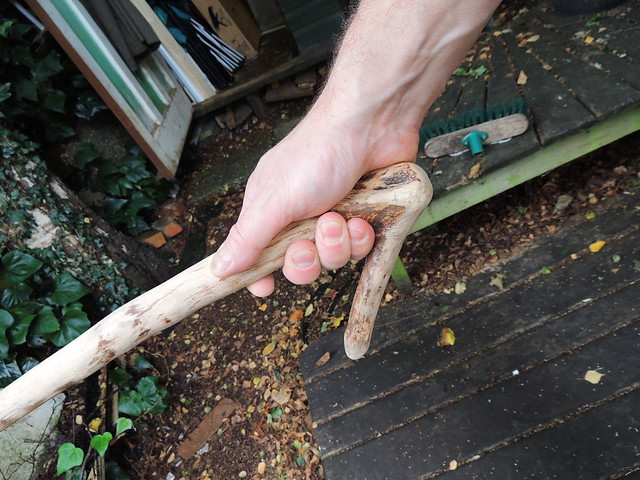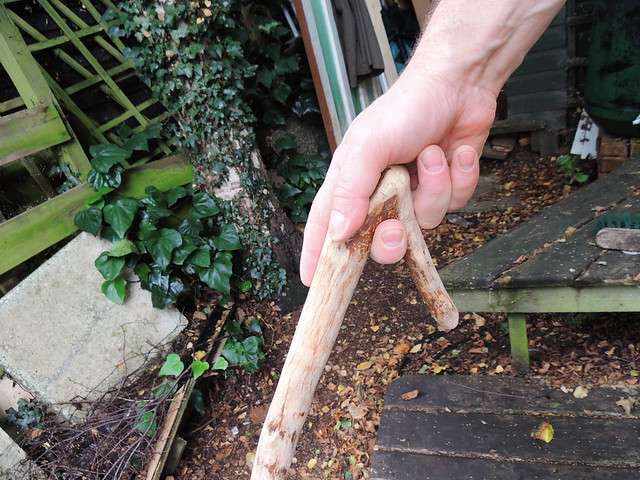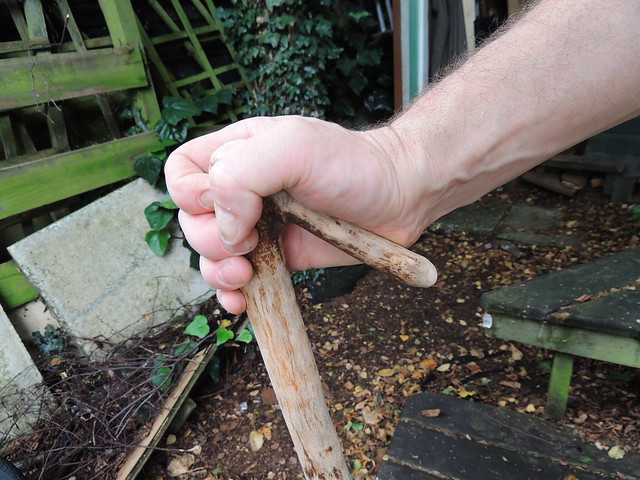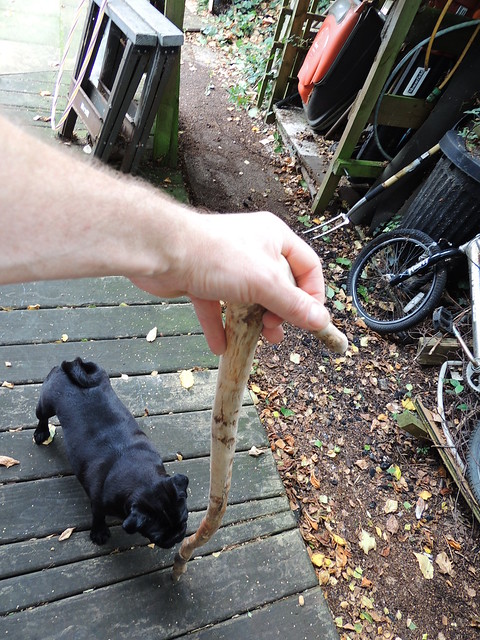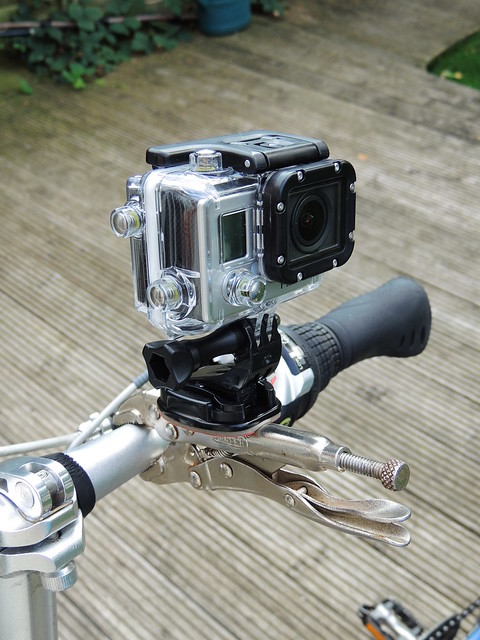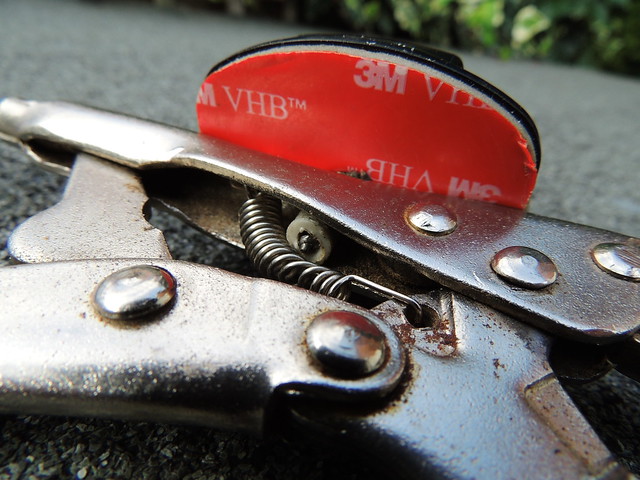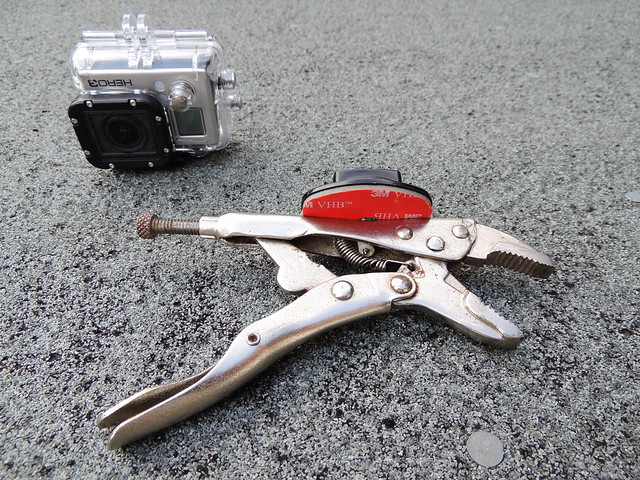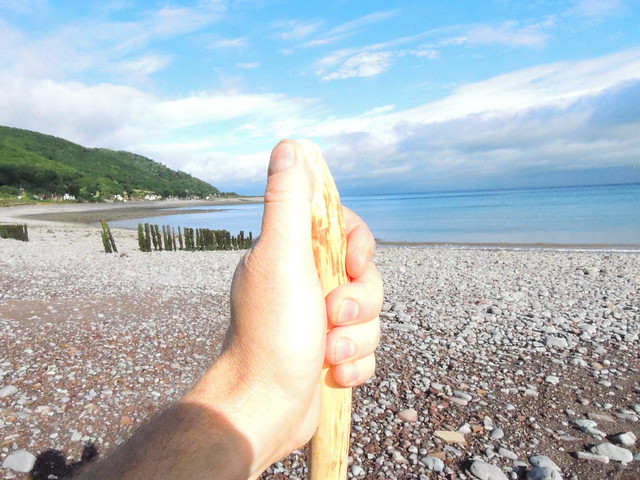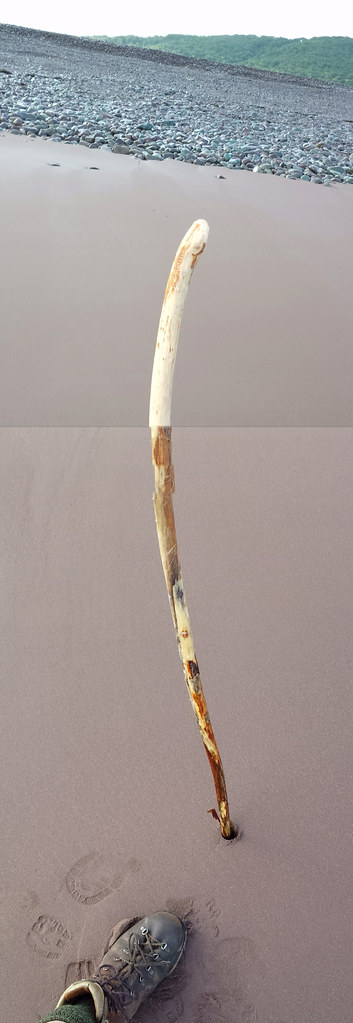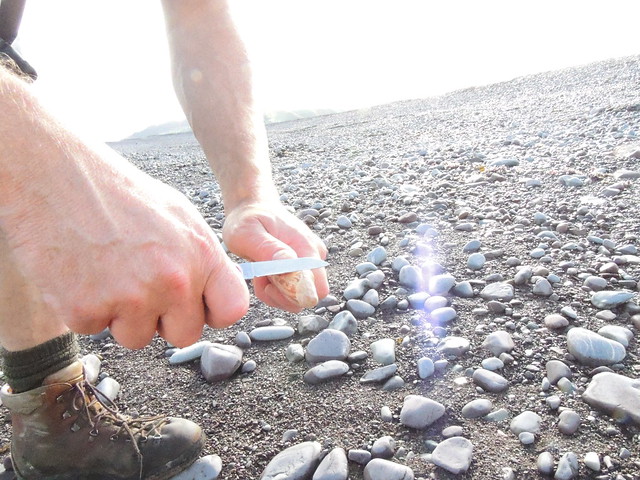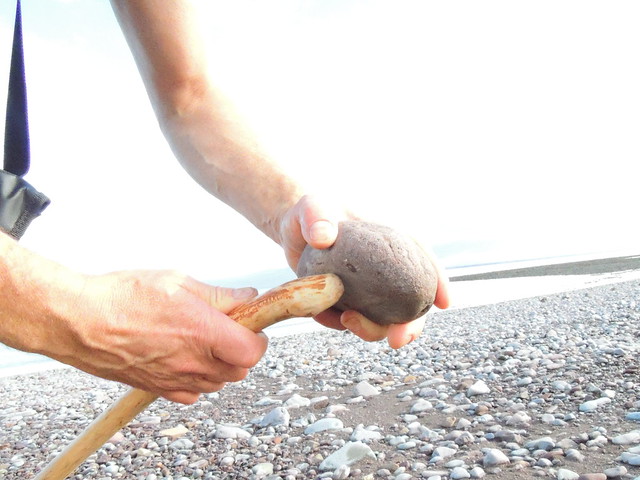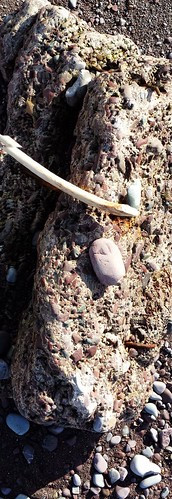I toyed with using the dremel on this, but way too much dust, so did it by hand with a saw, chisel, rasps, a knife a few micro-files. Took about an hour and half...
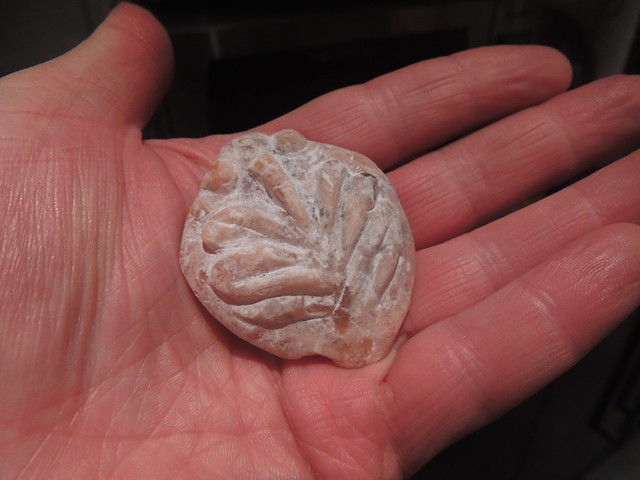
It starts with a lump of rock, very soft rock - alabaster - foraged off a beach at Blue Anchor in Somerset a few years ago.
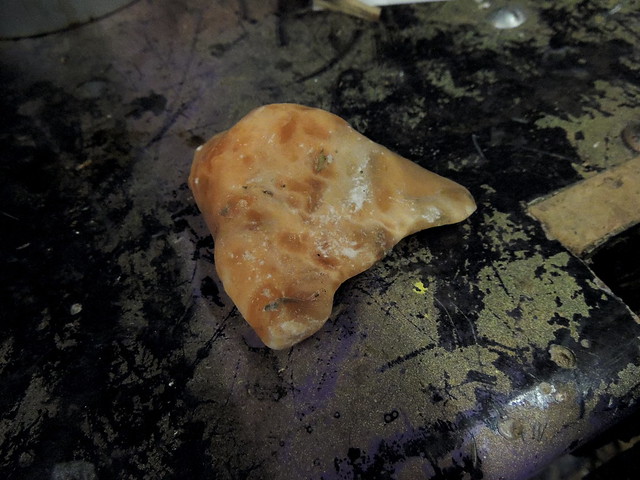
I had a look at some frankly disturbing pictures found using a google images search for "bedbug scanning electron"

I always need to do a few drawings to fix the shapes in the mind. (They don't need to be good ones, as you can tell)
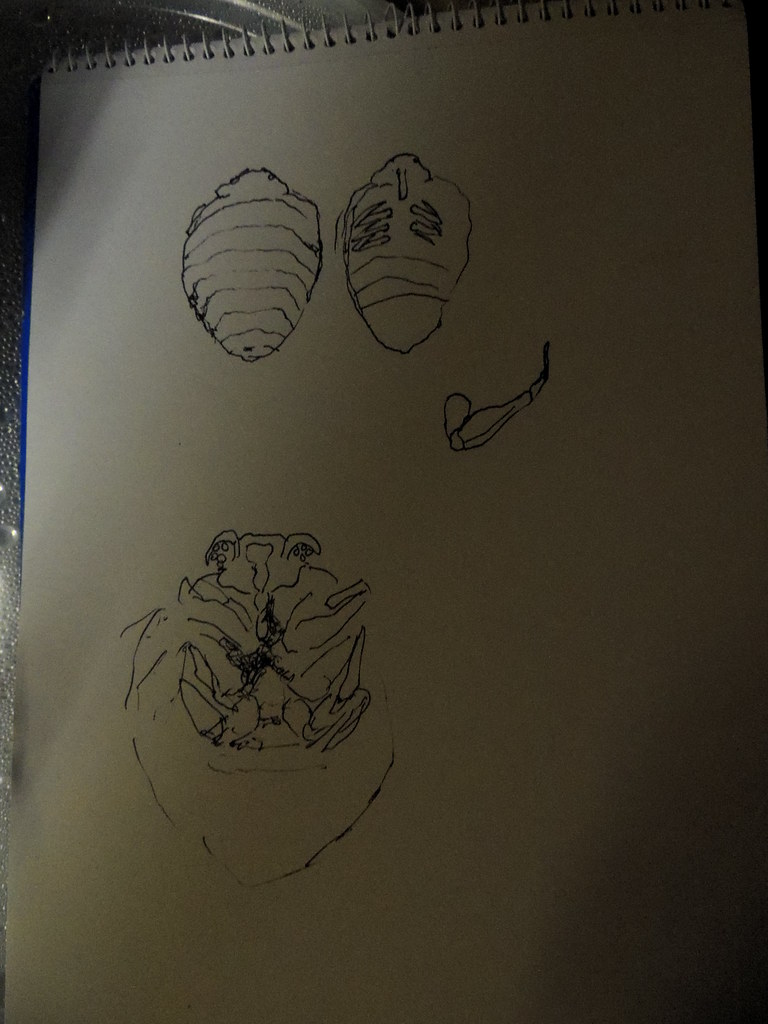
Then used a hacksaw to cut off larger protuberances to start to get the outline shape in 3 dimensions..
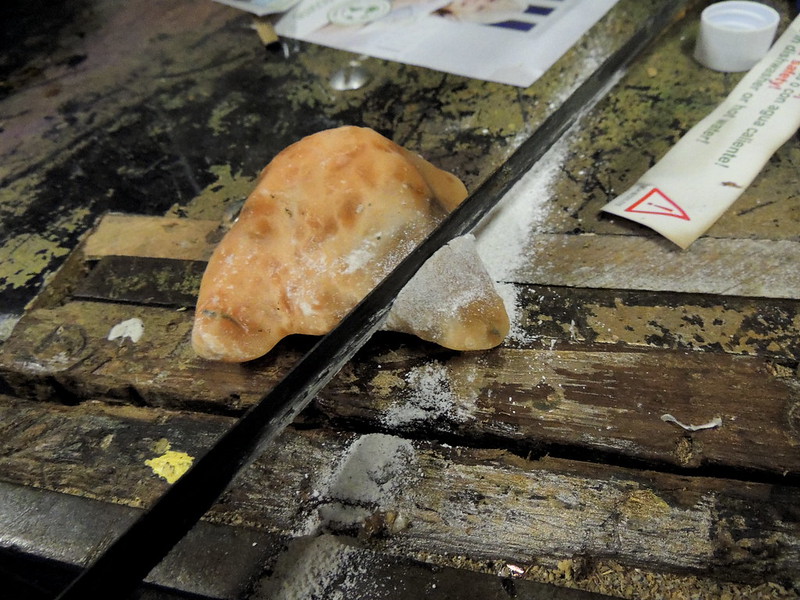
Then grate it down roughly to size with a monstrous rasp my father gave me (it's about18" long)

With the rasp I formed a carving blank, that was roughly the intended outline of a bedbug...

I drew out the details of the legs, then carved these with an old woodcarving chisl. Don't use a working chisel for this unless you like sharpening chisels a lot...

Obviously, oy can't use a vice as the rock would crack, so I held it in my hand. Also obvious was a chisel puncture wound. It's not real carving if you don't draw blood. At least it wasn't the rasp...
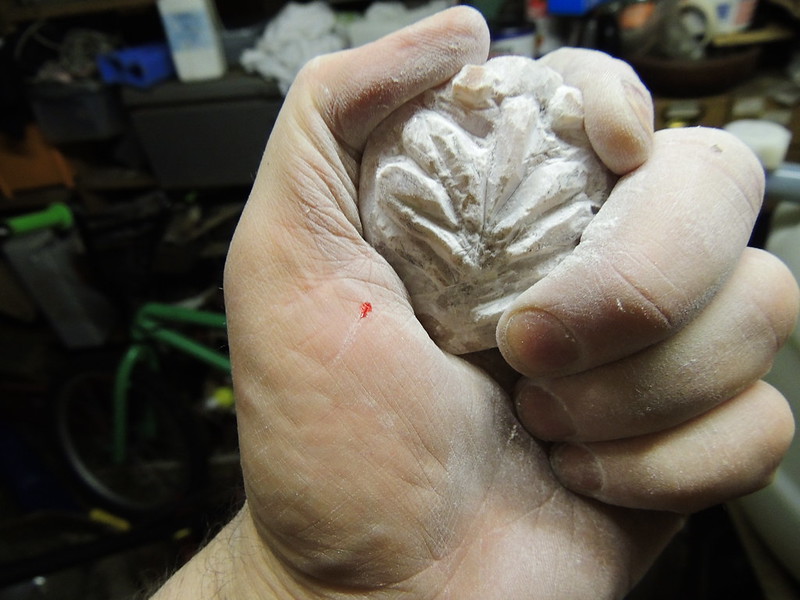
Some fine files (in hand) and steel clay modelling tools (on right) are very handy to scratch out the patterm of legs and biting mouthparts
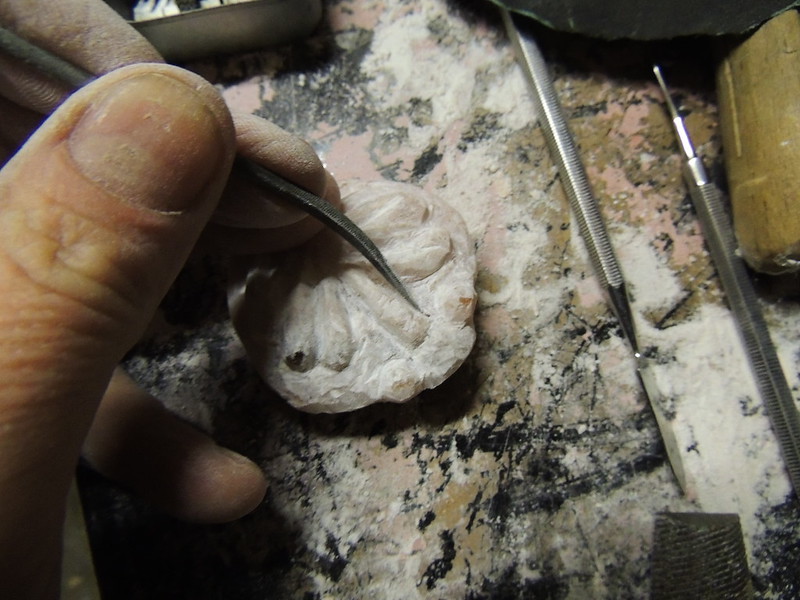
Loads of fiddling later, I used fine grit carborundum paper (240 grit wet and dry paper basically) to smooth and polish. If have lots of time, you can progressively use finer grades, or emery paste to get a super fine finish. You can even use bathroom scouring cream cleaner. Quite good for fine polishing
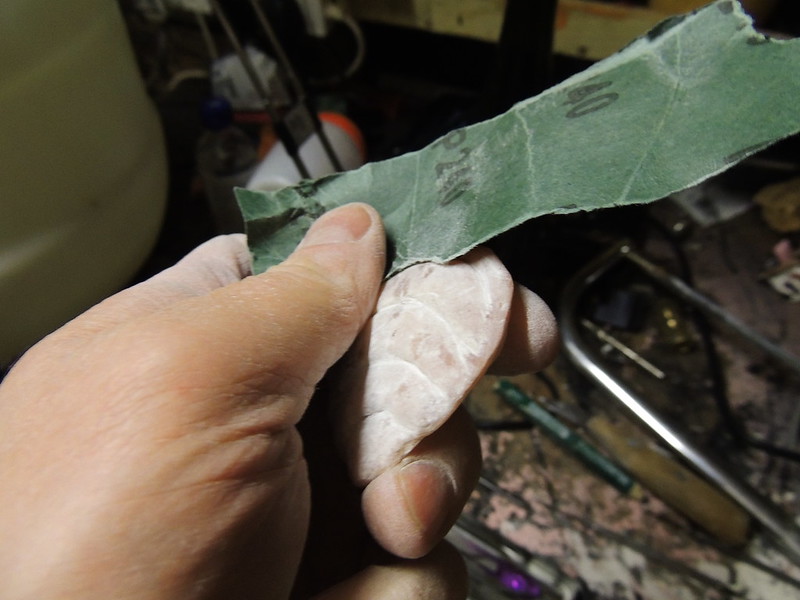
Here's the dorsal surface (ie. the bedbug carapace)
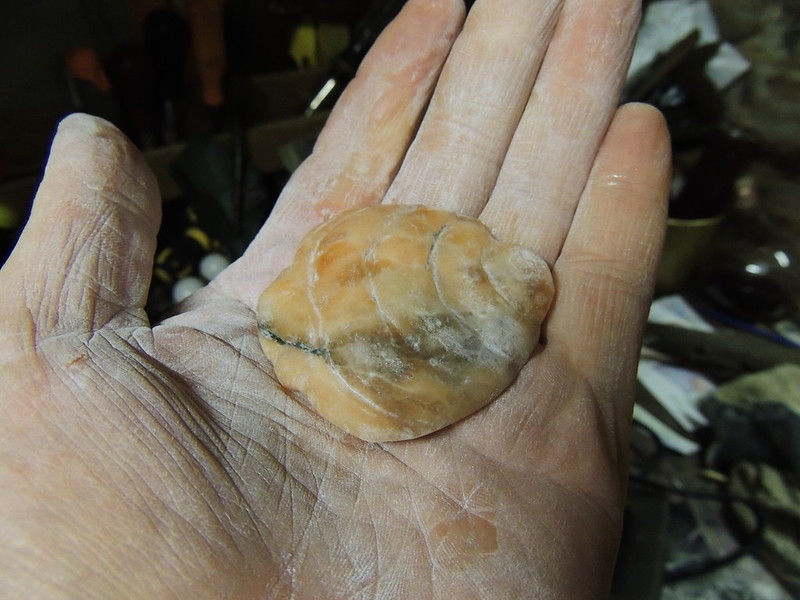
And wet it to see the detail. To get this effect, you can use spray lacquer. And that's it...
